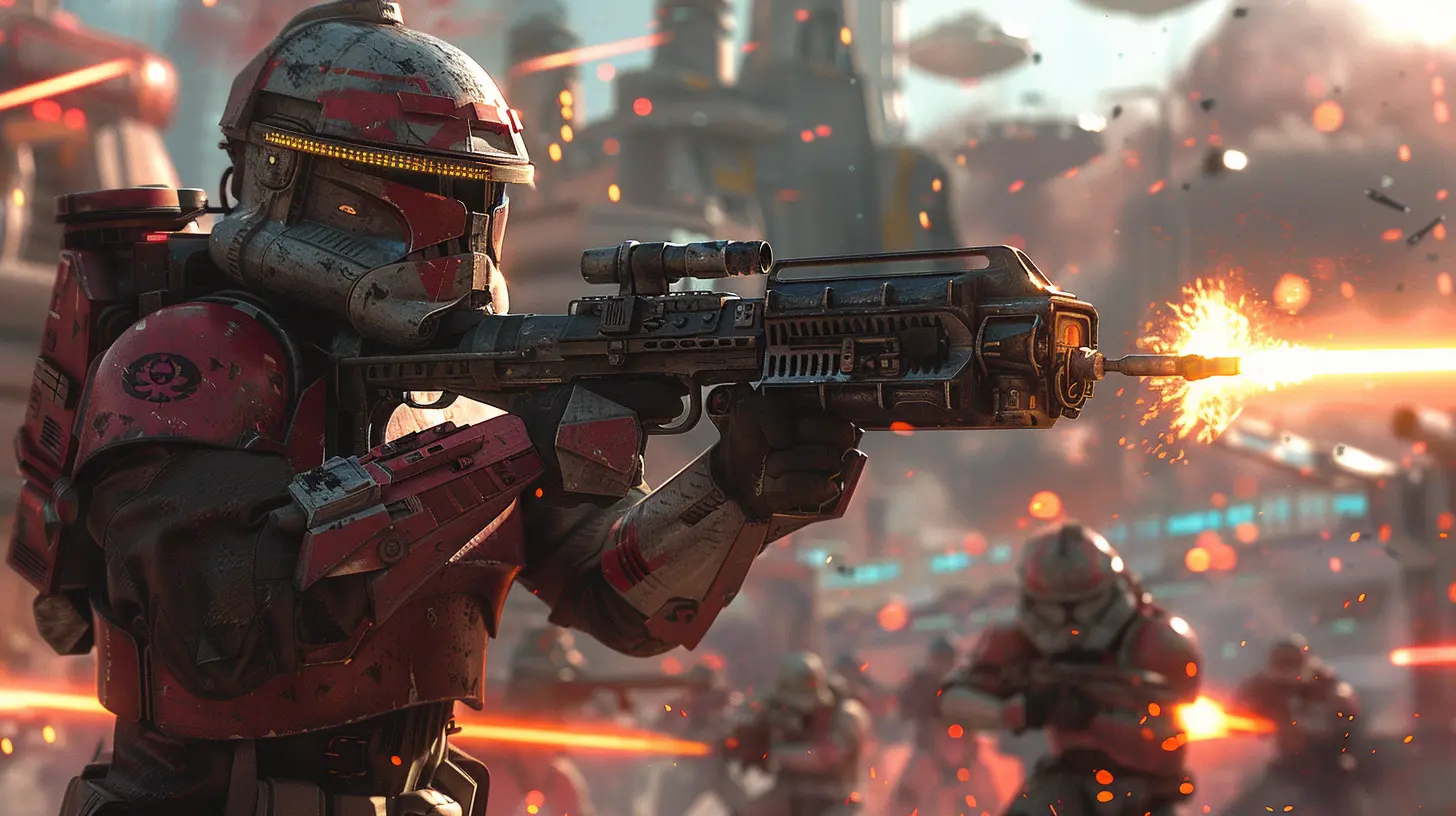Is Multiplayer Matchmaking Really Fair? A Deep Dive
15 June 2025
Let’s be real—we’ve all had those multiplayer matches where it felt like the universe just wanted to see us suffer. Whether you're getting steamrolled by sweaty pros or your teammates are practically sleepwalking, it's hard not to wonder: is multiplayer matchmaking really fair?
Welcome to the epic battleground of digital justice. In this deep dive, we’re going to break down what matchmaking really is, how it works, and whether that “fair” label developers keep boasting about actually holds up. Buckle up, because we’re not just scratching the surface—we’re diving deep.
What Is Multiplayer Matchmaking Anyway?
Before we start swinging blame at the system, let’s first understand what it is. Matchmaking is basically the behind-the-scenes magic that connects you with other players in an online game.It’s supposed to put you in a match that’s fun, balanced, and competitive. In theory, it uses algorithms to make sure you're playing against people around your skill level. You know—so you're not getting wrecked every round.
But here’s the kicker: the word “fair” is subjective. What's fair for one player might feel totally lopsided to another. So who decides the rules? Usually, that’s up to the developers and their matchmaking systems.
The Different Types of Matchmaking Systems
Not all matchmaking is created equal. Here are some of the most common systems games use:1. Skill-Based Matchmaking (SBMM)
SBMM does exactly what it says. It matches players based on their in-game performance, stats, and skill level. Sounds great, right?Well, in theory, yes. But it can also mean every match feels like a sweat-fest. You never really get those easy, relaxing “stomp the noobs” games. Imagine going to the gym, and every day feels like leg day. Ouch.
2. Random or Casual Matchmaking
Casual matchmaking is like rolling dice—it matches you with whoever’s available. It’s faster and more relaxed, but the skill disparity can be massive. One minute you’re dominating, the next you’re crying for mercy.3. Elo-Based Systems
Originally used in chess, Elo rating matchmaking assigns a number to your skill and adjusts it based on wins and losses. Think of it like a ranking stock market—win and your value goes up, lose and it drops. Games like League of Legends and CS:GO use variations of this system.
Is SBMM Making Games More Competitive or Less Fun?
Have you ever booted up your favorite shooter just wanting to chill, but instead you get thrown into a match full of human aim-bots? That’s the SBMM experience.The upside? Matches are usually close and competitive. The downside? It’s exhausting. SBMM means your game isn’t just casual fun anymore—it’s an endless ladder climb.
And let’s not ignore the sweaty circles of hell known as “reverse boosting.” Some players intentionally play poorly just to trick the system into giving them easier matches. That says a lot about how fun some people are having, doesn’t it?
The Invisible Hand: Hidden MMR and Algorithm Shenanigans
Ever feel like your matches suddenly get unfair after a winning streak? That might be hidden MMR (Matchmaking Rating) at work.Many games use secret formulas to track your performance. They're not always transparent, and that’s part of the problem. You could be rising through the ranks and not even realize the game is punishing your success by pairing you with tougher opponents.
It’s kind of like being promoted at work, only to find your office is now a pit of fire.
Matchmaking And Queue Time: A Dangerous Trade-Off
Here’s something a lot of players overlook: the balance between fair matchmaking and queue times.Let’s say you're Grandmaster level in a competitive FPS. If the game insists on perfect matchmaking, you could be stuck waiting 10 minutes just to find one match. Now that’s just awkward.
So developers have to walk a tightrope. Push for fairness and you risk long waits. Prioritize quick matches and you risk chaos. There's no perfect balance, and someone always loses out.
Group Play: The Wild Card in Fair Matchmaking
Playing solo? You probably want to be matched with and against other solo players.But throw in a group or a duo and the balance gets messy fast. Coordinated teams have a natural advantage over randoms. Unless the system accounts for coordination levels (spoiler: many don't), matches can tilt real quick.
How many times have we seen a solo queue player carried or crushed by a pre-made squad with mics, callouts, and actual teamwork? It’s like showing up to a sword fight with a butter knife.
The Role of RNG in Matchmaking
Some matchmaking systems use random elements to determine who you face. It keeps things unpredictable, but that also means you're sometimes at the mercy of luck.This randomness is more common in casual modes where the stakes are lower, but let’s be honest—losing a match because of RNG still stings. It's like flipping a coin to decide if your opponent is pro-tier or playing with their feet.
Is Smurfing Breaking The Matchmaking System?
Ah yes, smurfing. The art of high-level players creating low-level accounts to dunk on beginners. It’s basically the multiplayer equivalent of LeBron James showing up at a middle school basketball game.Smurfing throws a huge wrench into matchmaking. These players ruin the experience for lower-skilled opponents, and the system often can’t detect them fast enough.
And what's worse? Some matchmaking systems unintentionally encourage smurfing if players feel they can’t relax on their main account due to sweaty, skill-based matchmaking.
How Do Developers Defend Matchmaking?
Game devs aren't evil masterminds trying to ruin your day. But they do have priorities—player retention, competitive integrity, fast queue times, and good engagement numbers.Most matchmaking systems are built with these goals in mind. They aren't trying to make you lose, but they are trying to make your experience consistently engaging. Sometimes that means giving you just enough wins and losses to keep coming back.
It’s the digital version of a casino. You win just enough to stay hooked.
The Psychological Impact of Matchmaking
Let’s talk about the mind games. Matchmaking doesn’t just affect your win/loss record—it messes with your emotions.Ever notice that winning streaks feel short, but losing streaks feel endless? That’s legit. Studies show that negative experiences weigh heavier on our minds. Add in inconsistent matchmaking, and it’s easy to spiral into frustration.
Matchmaking that feels “rigged” can cause players to rage quit, uninstall, or even throw matches. Once trust in the system is gone, it’s hard to get back.
So... Is Multiplayer Matchmaking Really Fair?
Here’s the million-dollar question, right?The answer: kind of.
Matchmaking, in its purest form, is designed to be fair. But in execution? It gets messy. Between hidden ratings, player behavior, smurfing, team dynamics, and algorithm quirks, the system will never be perfect.
Fairness is a moving target. What feels balanced for a high-skill player might feel brutal to a newcomer. And unless you’re willing to wait forever in queue, matchmaking is always going to be a compromise.
What Can Be Done to Make It Better?
Game developers can’t fix all of matchmaking’s woes, but there are ways to improve things:- Transparency: Let us see our MMR! Knowing where you stand can help manage expectations.
- Separate Queues: Let casual players chill without the SBMM sweat, and give competitive players their hardcore fix.
- Smurf Detection: Use smarter systems to flag and handle smurfs faster.
- Player Feedback: Actually listen to the community. If everyone’s complaining about unfair matches—maybe take a look under the hood.
And for players? Keep your expectations in check. No system is perfect, and sometimes, the best way to enjoy a game is to stop stressing about your K/D ratio and just have fun.
Final Thoughts
Multiplayer matchmaking is one of those things we take for granted—until it starts going wrong. It's like plumbing in your house. You don’t notice it when it’s working, but when it breaks? All hell breaks loose.So, is matchmaking truly fair? Not always. But it's trying its best. It’s like a referee who’s a little sleep-deprived—mostly fine, sometimes off, occasionally infuriating. But love it or hate it, matchmaking is here to stay.
Just remember: win or lose, it’s all ones and zeros in the end. So maybe take a breath, lower your shoulders, and enjoy the game for what it is—a game.
all images in this post were generated using AI tools
Category:
Multiplayer GamesAuthor:

Lucy Ross
Discussion
rate this article
2 comments
Kathleen McVicar
As we unravel the complexities of multiplayer matchmaking, one must question: who truly holds the power—players or algorithms? Dive into the shadows of hidden statistics and unspoken biases, where countless matches play out in the balance. What secrets await in the depths of competitive gaming? Proceed with caution.
June 20, 2025 at 3:53 PM

Lucy Ross
Great question! The balance of power in multiplayer matchmaking often lies between players' skill and the algorithms designed to create fair matches, but biases in data can skew results. It's a complex interplay worth exploring further!
Abigail McEvoy
Great article! You've tackled a complex topic with clarity and insight. It's so important to examine the nuances of multiplayer matchmaking, as fairness can really impact the gaming experience. Your analysis encourages thoughtful discussion among players. Looking forward to more of your deep dives! Keep it up!
June 18, 2025 at 4:29 PM

Lucy Ross
Thank you so much for your kind words! I'm glad you found the article insightful. I appreciate your support and look forward to sharing more deep dives soon!


